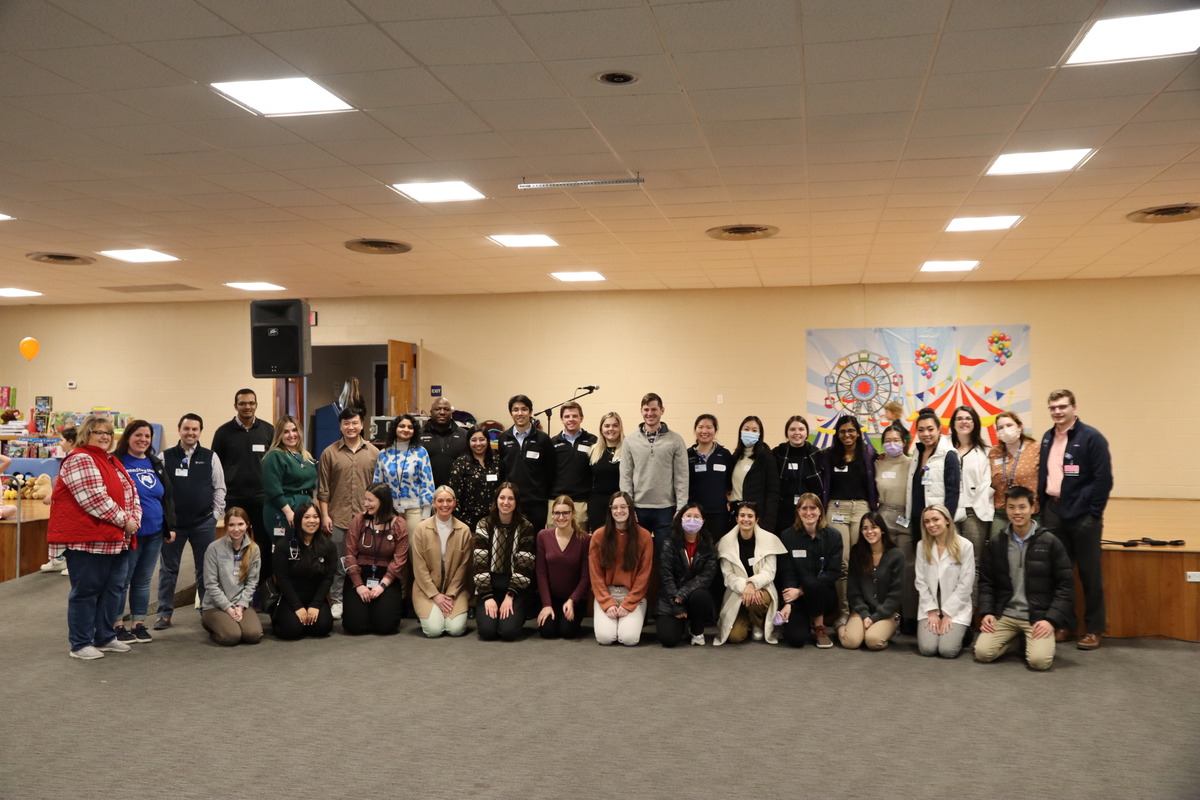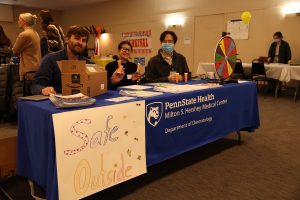Penn State College of Medicine students receive grant to expand mobile free clinic to underserved communities

A mobile free clinic driven by medical students from Penn State College of Medicine received a grant that will expand its services to improve health care access in underserved communities across central Pennsylvania.
Dauphin County Gaming Advisory Board awarded $26,000 to the Student-run and Collaborative Outreach Program for Health Equity (SCOPE), the latest and largest grant in a string of investments by institutions and boards that support the program’s mission, said Amy Zheng, fourth-year medical student and SCOPE senior advisor.
“With the Gaming grant, we seek to provide health care access through point-of-care services to underserved communities. We have collaborated with the Dauphin County Economic and Development team to identify and establish relationships with low-income or low-resourced county areas,” Zheng said. “With our new sites, we plan to use the funds to establish our presence as a community resource through outreach events and eventually develop monthly free clinics with clinical staff and students.”
SCOPE was established in 2017 by a group of four MD/PhD students who recognized considerable health disparities within the region. Needs in rural Dauphin County in particular were not adequately met by the limited local health resources available, said Megan Mendez-Miller, DO, associate professor of family and community medicine and SCOPE’s faculty advisor.
“SCOPE was created to fill this gap,” said Garrett Thompson, a fourth-year medical student involved in the clinic.
The initiative has grown to partner with sites in underserved communities across central Pennsylvania to provide preventative medical interventions, health education and other community-identified health needs, offer patient navigation services, and collect data to document and improve patient outcomes. Depending on the needs of its partner sites, services offered by SCOPE could include vaccination clinics, information on how to access free cancer screenings, diabetes and blood pressure screenings, nutrition samples or small health kit giveaways.
“We structure our events in conjunction with general community resources, such as food pantries or community fairs, in order to make SCOPE as accessible and approachable as possible,” Zheng said.
Since its founding, SCOPE has established 10 sites for outreach events with local community leaders, three of which include longitudinal clinic development. Today, more than 100 medical students on the SCOPE listserv have attended meetings, participated in events or served on the leadership board.

Chris Bazewicz, MD, dermatology resident, and Brianna Papoutsis and Jinpyo Hong, both first-year medical students, set up a skincare safety table during the SCOPE community outreach event on Saturday, Jan. 28 in Lykens. (Photo: Gianni Pescetto)
Students involved in SCOPE see it as initiative that defines what medicine means to each of them – something that speaks to why they were drawn to the field of medicine in the first place.
“Since college, I had been struck by public health and the complexity of health inequities,” Zheng said. “I joined SCOPE because I felt our goals aligned well. The power of an open and strong relationship with our patients, our community, is what allowed us to develop such impactful events. This is what also inspired me to enter medicine and what motivates me as an aspiring physician.
“SCOPE has been one of my favorite and most formative experiences in medical school because our work with the community has taught me that the heart of medicine centers on our patients.”
For Thompson, he sees SCOPE as a prime example of medical students taking the lead to address health needs within their communities.
“It provides students with the opportunity to connect with community members to assess, then attempt to address their needs through creative and innovative solutions,” he said.
Mendez-Miller has been with the group from the beginning. She immediately saw not only the importance of the initiative for local communities, but also that its goals fell perfectly in line with the College of Medicine missions.
“How better to provide compassionate, culturally responsive care and educate health care professionals to do so for the rest of their careers than by wading into the lives of those who need help our local communities?” she said. “I am so proud of SCOPE students for connecting on a humanistic, individual level with other people in a humble and relational way to create major impacts in the communities we live and serve.”
SCOPE members Zheng, Thompson, Caroline Eisele, Deniz Siso and Gitanjali Bhushan – all fourth-year medical students – wrote the grant application for the Gaming Advisory Board funding. From the community collaborators to the students who write institutions to request funding, Zheng said it takes a village to ensure SCOPE continues to help meet the needs of underserved communities.
“I want to give a huge shout-out to all of our collaborators, grant institutions and local partners,” she said. “It’s so important for folks to know how many people are out there willing to help.”
Involvement in SCOPE is open to anyone. For more details about the clinic or to sign up to participate, email scope@pennstatehealth.psu.edu.
If you're having trouble accessing this content, or would like it in another format, please email Penn State Health Marketing & Communications.
